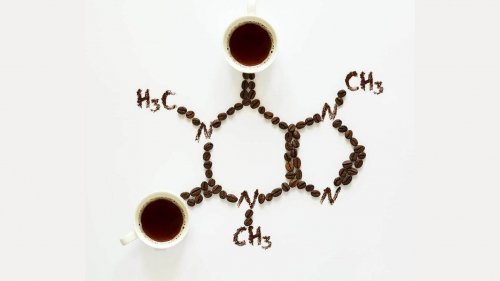Do Vitamins Provide Energy?


Written and verified by the nutritionist Saúl Sánchez Arias
Vitamins are essential micronutrients that participate in a multitude of metabolic processes and which can provide energy. It’s necessary to guarantee their intake since a deficit can propitiate the appearance of diseases. Furthermore, they’re directly related to energy production.
We must remember that there are two types of vitamins: water-soluble and fat-soluble. The former dissolves in water and the latter in fat. However, this condition means we can only store accumulative fatty tissue. Water-soluble substances, meanwhile, will be lost through urine.
So, in this article, we’ll deal with the case of group B water-soluble vitamins and their multitude of processes related to energy metabolism, as stated by various scientific studies.
Do vitamins provide energy?
It’s clear the main nutrients for energy are carbohydrates and fats. Depending on whether we use aerobic or anaerobic metabolism, one or the other of these will take on a greater role.
However, the existence of catalytic substances is necessary to produce the energetic reactions. These are, in particular, B vitamins. Many of the energy reactions take place in the mitochondria. Cellular respiration depends, among other things, on these organelles.
Scientific journals suggest that vitamin B2 acts as a fundamental co-factor in obtaining energy in the cell. However, this doesn’t mean that vitamin supplementation or increased vitamin intake will improve our vitality levels.
Unless there’s a previous deficit, there’s no study that shows that an increase in these substances in our body can result in greater energy production.

It may interest you: What Are the Water-Soluble Vitamins?
Ways to increase your energy levels with vitamins
When looking for an increase in vitality levels, the best option is to carry out a varied and balanced diet. Also, you should exercise regularly. In this way, it’ll improve the efficiency of energy reactions; muscle adaptations will occur and regulate the hormonal system.
Certain nutrient deficiencies may be related to the onset of fatigue. A typical case is a pathology known as anemia. This disease occurs with a decrease in the efficiency of oxygen transport derived from a vitamin B12 or iron deficiency.
It’s linked to restrictive diets devoid of meat, typical of long-distance athletes. For these reasons, eliminating a group of foods from our diet can be fatal when looking for an improvement in our health.
Effective supplements
There are ergogenic aids that can increase our vitality and performance. This is the case of caffeine, therefore, which is capable of improving the cognitive system and reducing the appearance of fatigue according to scientific literature.
This substance increases the feeling of energy and is toxic in high amounts. However, its use is reduced to a specific dosage spectrum and there are cases in which its use isn’t recommended.
Its consumption is safe in the medium and long term. Furthermore, it’s linked to protection over the development of long-term neurodegenerative diseases. There are scientific articles that support this statement, although, as we mentioned, it’s recommended only in moderate doses.

Be sure to see: Avitaminosis – The Lack of Vitamins
Just be clear on this: vitamins provide energy
Despite the fact that vitamin B is a source of metabolic energy, there’s no evidence that leads us to affirm that an increase in its consumption will improve energy levels and vitality.
For this task, the best option is to carry out a varied and balanced diet. Avoiding the restrictions of food groups will allow you not to have nutrient deficiencies. This, in turn, will produce optimal functioning of the cellular and energy metabolism that’ll keep the body in good condition.
However, there are some ergogenic aids to improve, albeit momentarily, energy levels. Caffeine, as we mentioned is an excellent option for this task.
Finally, if you have doubts about the quality of your diet, it’s best to get the opinion of a nutritionist. This professional will optimize your diet so that you’ll never lack energy.
All cited sources were thoroughly reviewed by our team to ensure their quality, reliability, currency, and validity. The bibliography of this article was considered reliable and of academic or scientific accuracy.
- Depeint F., Bruce WR., Shangari N., Mehta R., O’Brien PJ., Mitochondrial function and toxicity: role of the B vitamin family on mitocondrial energy metabolism. Chem Biol Interact, 2006. 163 (1-2): 94-112.
- Henriques BJ., Lucas TG., Gomes CM., Therapeutic approaches using riboflavin in mitocondrial energy metabolism disorders. Curr Drug Targets, 2016. 17 (13): 1527-34.
- Smirmaul BP., De Moraes AC., Angjus L., Marcora SM., Effects of caffeine on neuromuscular fatigue and performance during high intensity cycling exercise in moderate hipoxia. Eur J Appl Physiol, 2017. 117 (1): 27-38.
- Kolhadouzan M., Hamadeh MJ., The neuroprotective effects of caffeine in neurodegenerative diseases. CNS Neurosci Ther, 2017. 23 (4): 272-290.
This text is provided for informational purposes only and does not replace consultation with a professional. If in doubt, consult your specialist.








